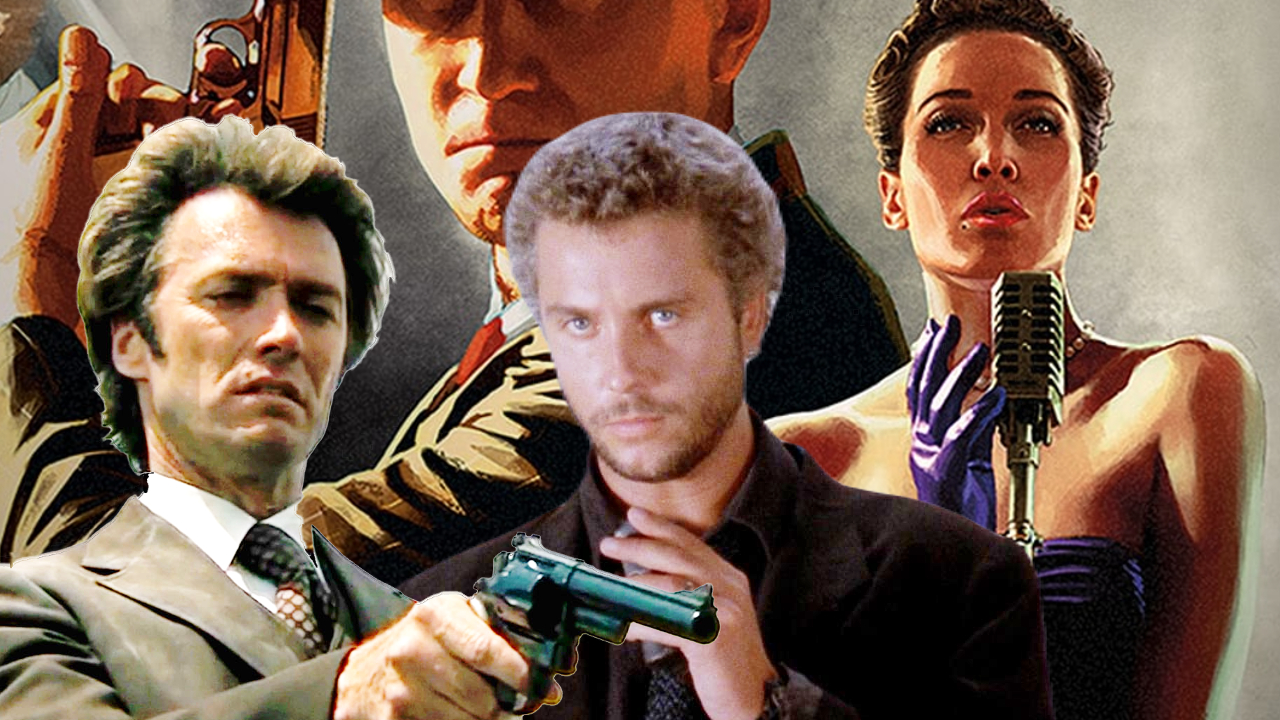The Biggest Missed Opportunity In Rockstar History
The Best L.A. Noire 2 Setting Probably Isn't What You Think

There's no doubt that another '40s or '50s-set L.A. Noire game would be a worthwhile endeavour, but it would - any potential gameplay innovations aside - be more of the same. Team Bondi so expertly brought together the influences of Ellroy and classic Hollywood spectacle that taking the same path again in a sequel, while not without logic, would almost feel redundant. Is there more to be explored with the likes of Jack Kelso and antagonists Captain Donnelly and Roy Earle? Undoubtedly, and thinking in terms of introducing a new generation to the franchise, there is logic in a return to those genre roots. But Rockstar has a history of anthologies - of sequels that switch locations and timelines - and L.A. Noire is the perfect series to inherit that GTA-style approach.
Rockstar as a studio has made no secret of its love for cinema, with both the Grand Theft Auto and Red Dead Redemption series paying homage to crime films and Westerns aplenty, and the studio's iterative approach to Grand Theft Auto has afforded plenty more opportunities to do that than it would have had it been restricted to just a contemporary setting. Whether it's the Miami Vice stylings of GTA: Vice City or the '90s blockbuster approach to action evident in San Andreas, Rockstar has been at its strongest when its games are immersed in a set milieu, and moving through the decades has meant that GTA has been able to redefine its identity across multiple iterations.
Now apply that same approach to L.A. Noire, a game immersed in its genre namesake and post-war setting. What you're left with is an opportunity to explore the evolution of a genre and a city, with each entry departing on a stylistic and tonal front to mirror previous on-screen depictions and capture the zeitgeist of each decade respectively. L.A. Noire 2 would, in this concept, serve as a bridge between classic film noir and neo-noir, taking cues from Don Siegel and Dirty Harry, John Boorman and Point Blank, Peter Yates and Bullitt, with a game set in the mid-to-late 1960s or early '70s.
Where the original L.A. Noire saw Cole Phelps tussle with the likes of Mickey Cohen and the Black Dahlia, a '70s set game could see the player character get embroiled in the Zodiac, cults inspired by Manson and the Peoples Temple, as well as cases drawn from the fiction of the day. Rock, funk and soul would reverberate on your car radio, while in place of a .45 semiautomatic, you could use Harry Callahan's iconic .44 magnum. Hangar 13 channelled these exact influences in its underrated 2016 effort, Mafia III, and it's easy to envisage how Rockstar could transplant those themes into L.A. Noire.
The series could go decade by decade with this approach, paying homage to genre landmarks while entangling itself in the history of the day. For an L.A. Noire game set in the 1980s, that would mean taking cues from Michael Mann - namely his work on the original Miami Vice TV series and the movies Manhunter, and Thief, as well as William Friedkin, whose 1985 neo-noir masterpiece To Live and Die in L.A. provides a perfect visual moodboard of neon and fire for the concept. Throw in some Tangerine Dream, a few MTV hits and some loud, Don Johnson-esque hairstyles, and you're pretty much set for a killer Reagan-era neo-noir.
As for the '90s, Rockstar could take cues from Tony Scott, David Fincher, and Mann again, fusing high contrast, Bruckheimer-esque action with dark and gritty subject matter. Who wouldn't want to tear up L.A. as a coked-up Vincent Hanna surrogate, or as a down-on-his-luck private eye along the lines of Bruce Willis' Joe Hallenbeck in The Last Boy Scout?
The point in and amongst all this noir gushing is that the genre is diverse, and L.A. Noire need not be beholden to one era or setting. Moving forward through history would provide an avenue for Rockstar to exploit its deep affection for popular culture, as well as one that would challenge its storytelling abilities. Outside of Red Dead, Rockstar's games have largely been defined by their irreverent approach when paying tribute to their cinematic forebears. Taking on Team Bondi's world, however, would hopefully play more to the strengths we saw the studio exert in Red Dead Redemption 2, a game that ranks among the very best as far as narrative and performance is concerned.
[Article continues on next page...]